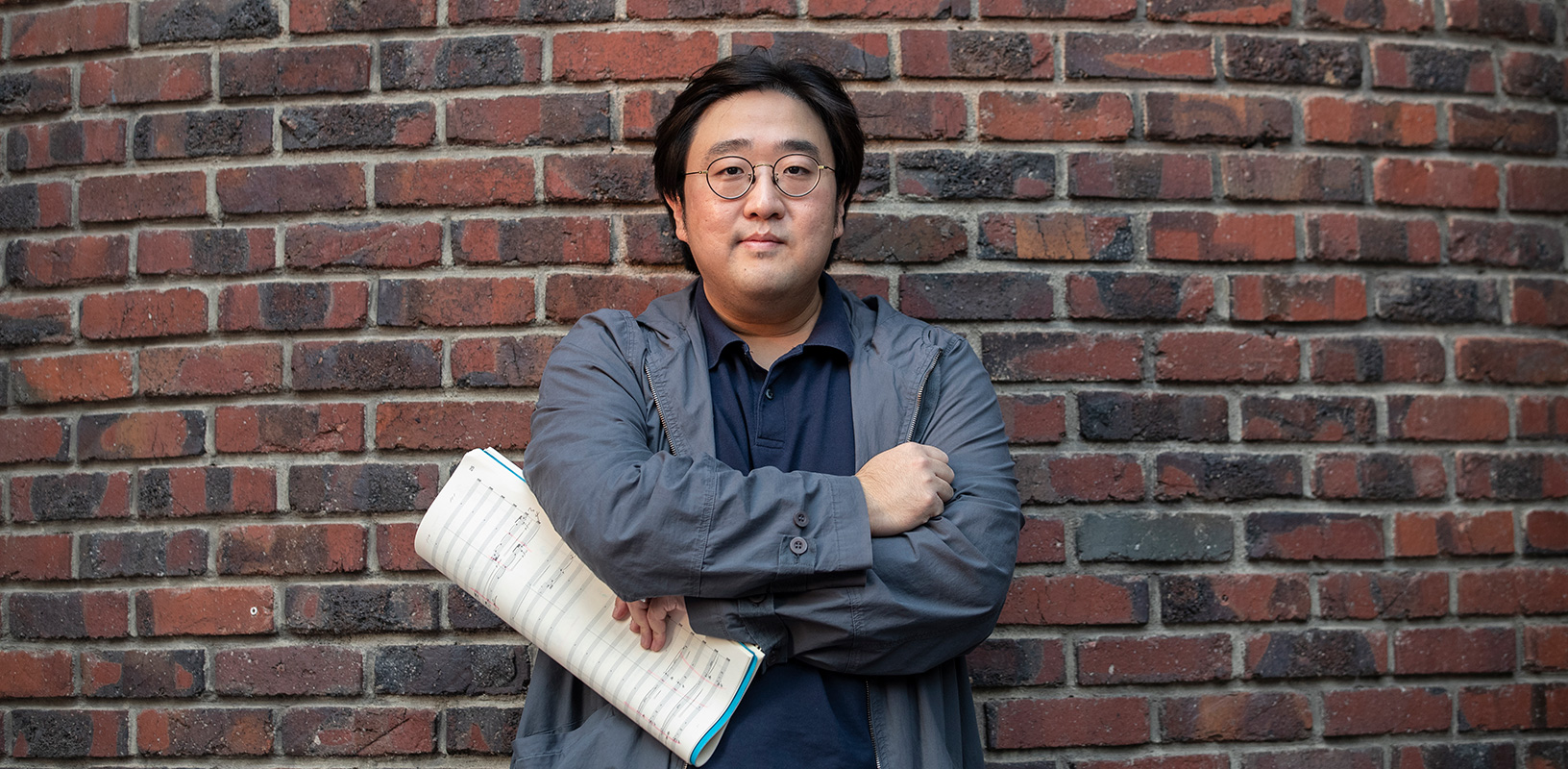Donghoon Shin: orchestral travels from Seoul to Amsterdam

The newest orchestral work by Donghoon Shin, Upon His Ghostly Solitude, receives its Asian and Dutch premieres over the coming months, conducted by Jaap van Zweden and Osmo Vänskä.
Composer Donghoon Shin returns to his native city Seoul this month, for the first Asian performance of his orchestral work Upon His Ghostly Solitude. Jaap van Zweden conducts the 17-minute score at the LOTTE Concert Hall on 21 December at the helm of the Seoul Philharmonic Orchestra. The work was first performed by the Los Angeles Philharmonic in April 2023, followed by its German premiere the following month by the Bamberg Symphony, both conducted by Osmo Vänskä.
Vänskä is also on the rostrum for the Dutch premiere of Upon His Ghostly Solitude, at the Royal Concertgebouw Hall in Amsterdam on 27 January. This concert with the Netherlands Radio Philharmonic is presented by the NTR ZaterdagMatinee series, which this season features music by fellow-Korean composer Unsuk Chin. Donghoon Shin has a long history of working with conductor Osmo Vänskä, who has previously conducted his music with the Minnesota Orchestra and the Helsinki Philharmonic.
Upon His Ghostly Solitude is a musical meditation on the cycles of history, drawing twin inspiration from WB Yeats and Alban Berg, who according to the composer both “suffered in the wounded world but tried to keep their voices and ideas intact even when everything ‘falls apart, and the centre cannot hold’”. The starting point was Yeats’s poem Nineteen Hundred and Nineteen, which Shin realized remains just as relevant to our own times, beset with human instability and the effects of conflict. The musical reference point, composed four years before the date of Yeats’s poem, was Alban Berg’s Three Orchestral Pieces, which “try to depict the terror and the despair in the crippled world through Romantic, Expressionist gestures”.
The cyclical nature of history observed by Yeats evoked a strong musical structure for Shin, who introduces a four-chord harmonic theme (he calls it the “core engine” of the piece) that reappears in each movement in altered versions of itself. He ties this to a line in the poem: “Whirls out new right and wrong / Whirls in the old instead.” Another line —“All men are dancers and their tread goes to the barbarous clangour of a gong”—moved Shin to compose a march (inspired by Berg and Mahler) in the final movement, building to a climax that is violently cut off by the sound of a gong stroke.
Reviews from the Los Angeles premiere praised Shin’s time-travelling dialogue with the world of the 1910s. San Francisco Classical Voice described the “shimmering tones in the orchestra … ghostly harmonics in the strings”, observing how the work “grows to a mournful richness”. Musical America noted how “Shin took advantage of the full orchestra… It was powerful stuff, worth hearing again.” Backtrack summed the work up as “an orchestral showpiece … superb Mahlerian gestures… Its Straussian contexts were painted with broad brush strokes and glowing colours strewn with feverish snatches of a march or waltz”.
Other works composed by Donghoon Shin since he signed a contract with Boosey & Hawkes in 2022 include Double Act, a concerto for sheng, accordion and orchestra. The composer describes how the timbres of the two solo instruments “may appear to be quite homogeneous but they have completely different mechanisms of sonic production and can also project distinctive soundworlds that are very far apart. The curious relationship made me think of two Manzai dancers in a Korean/Japanese traditional double act, whom I imagined to look very much alike but possess personalities and characteristics at opposite ends of the spectrum. I decided to create an ‘imaginary music theatre’ which is full of humour, irony and paradox, led by two Manzai dancers, the sheng and the accordion.”
> Further information on Work: Upon His Ghostly Solitude
Photo: Lee Tae Kyung / the Chosunilbo
